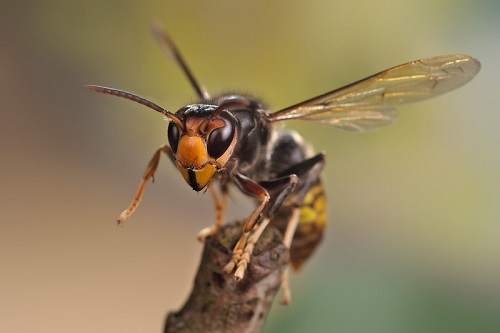Honey Bee-Eating Hornets Found in Washington
December 23, 2019
As if honey bees don’t have enough problems already, now an Asian hornet known for its tendency to eat honey bees is invading the state of Washington. The hornet is the largest pest of its kind, and it can be quite frightening to both see and hear. However, it is not human blood the pest wants. No, it would prefer to make a snack out of our buddy the honey bee.
New Arrivals
This is not a rare form of hornet; it is just one not one regularly round here in the states. Most reports I have read so far are of the belief the hornet has immigrated from Canada, without the appropriate immigration papers, we are assuming! Seriously, though, the entire discovery is rather baffling at this point.
The hornets were first spotted in Blaine, WA. The city is right on the border with Canada, hence the assumption made above. Since this particular hornet has never been spotted in Washington before, the Washington State Department of Agriculture was rather eager to check out the specimen. While the hornet was dead when they arrived, the resident who spotted the hornet reported that it was seen flying around a nearby bird feeder.
Typically, this hornet will be dormant during the winter months, just like our honey bee friends. However, wildlife officials in British Columbia did report killing a hive of Asian hornets this summer, so this hornet may have been a part of that hive but somehow managed to escape without harm. The hornets have also been reported throughout the UK, so this could become a problem rather quickly considered how far these hornets are apparently capable of traveling.
Targeting Honey Bees
As stated above, these hornets are far larger than honey bees, but all is not lost. At five times the size of a typical honey bee, these hornets can kill as many as 40 honey bees in a minute. The hornet prefers to attack the honey bees when they are clustered in their hives, making them an easy target. However, worker bees will form a “ball” around the hornet, squeezing and vibrating the hornet to death. So, while the hornet will notch some kills within the hive, it does so at its own peril.
At this time, health officials are saying there is no need for panic. We obviously want to keep this insect out of our country, but it does not seem to be an invasion of a large scale, so, hopefully, our honey bees are safe for now.
Source: CNN, Photo Courtesy of Gilles San Martin via Creative Commons License


.jpg)




